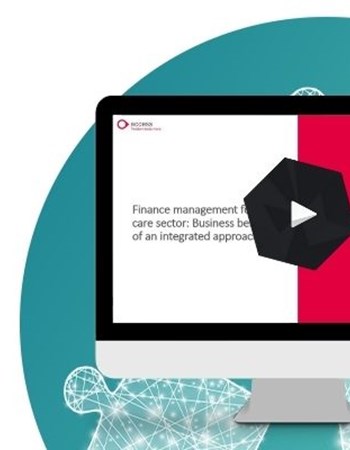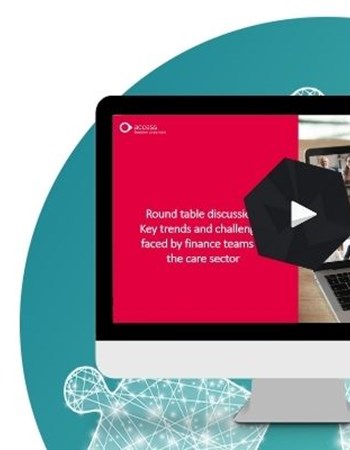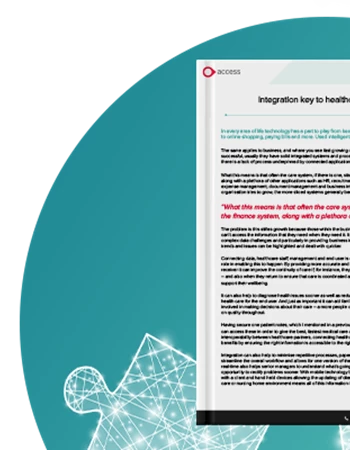
Are your finance systems and processes a help or hinderance?
As care organisations have faced even more pressures than usual, the role of finance has been put under the spotlight. How have your processes been coping?
 5
5
Written by The Access Group
In recent months, as care organisations have faced even more pressures than usual, the role of finance has been put under the spotlight. Take a moment to consider how easy it has been to respond to urgent data requirements, keep on top of the current situation from a financial perspective, and access the information needed to make important decisions which will impact your organisation’s ability to deliver care now and over the longer term? If none of this has been straightforward, it is likely your finance systems are causing some issues.
Unfortunately, we don’t live in an ideal world – and many finance professionals have struggled simply because their systems are outdated and therefore not geared up to deal with the financial pressures now facing the care sector. It’s understandable that investing resources into modern technology may not have been at the top of the priority list when dealing with chronic underfunding and cashflow issues. But problems can’t be put to one side forever without there being some impact.
If your organisation has outgrown its finance system, there are three problems you’re likely to have experienced.
1: It is frequently difficult (or impossible) to see the bigger picture
If this sounds familiar – don’t worry, you’re not alone. So many care organisations have valiantly kept going with outdated systems and manual processes, simply because that’s the way things have always been done. The trouble is that entrenched ways of working which are not ‘joined up’ mean that the valuable data you hold is kept in separate silos. It’s all there – it’s just really time-consuming to pull information together from different sources and cross-reference to draw out insights and conclusions. Reporting becomes inherently difficult. And your reports will immediately begin to become outdated if they’re not pulling on real time information.
2: Decisions are not easily backed up by hard financial evidence
In a similar vein to the big picture issue – when data is not integrated, it is also very difficult to pull on the financial evidence you need to support your decision-making. Some much of the finance team’s time in a care setting is taken up with admin heavy activities such as rekeying data. By investing in software with automation, and then letting it do the hard work of repetitive, time-intensive finance tasks, you can reduce the time spend on administration. Importantly, it also means you can very easily and quickly draw out the numbers you need to back-up the day-to-day decisions being made about how care is provided and what the longer-term impact will be.
If your accountancy and operational systems cannot accurately monitor the number of service users coming in and out and the level of care provided it is very hard to show funding providers the level of detail they need. This lack of evidence of your care service delivery then leads to underfunding, which in turn affects care quality. If you want to increase profitability and reduce the amount of funding top-up you are having to provide from your own reserves, then a new integrated system is the answer.
3: Planning ahead is difficult to do quickly or with confidence
In these turbulent times, it makes a real difference if you can look ahead with some degree of certainty about how your organisation will cope over the longer term. In the care sector, planning ahead is difficult enough in normal circumstances, never mind when every provider is still trying to adjust to the unprecedented impact of COVID-19.
A vital part of the planning process is the ability to react quickly as change happens. That means firstly constructing plans that draw on all the information available; it also means being able to create ‘what if’ scenarios and see the impact of specific adjustments at the touch of button. When you are confident your plan takes account of all the pertinent factors and numbers, it’s so much easier to feel prepared for what is to come. Conversely, if you are concerned that the data isn’t complete, isn’t consistent, and isn’t necessarily accurate – that will make a huge difference to how prepared you really can be.
Consider moving to the cloud as a flexible solution
These are big issues to consider and many finance leads across the care sector are currently wrestling with how best to move forwards. A cloud-based solution offers a multitude of benefits – including for a person-centred industry such as health and social care in which computing is largely ancillary.
Consider these three reasons.
For starters, the cloud is more secure, not less. Although many people wrongly consider cloud-based data storage services to be unsafe, the reality is that elements such as sophisticated security firewalls, two-factor logins, and 24/7 support are far superior to anything a single organisation could do on its own.
Secondly, moving to the cloud makes it much easier to aggregate data and that in turn enables you to achieve far better insight. In the healthcare world, it’s common practice at many institutions to extract insights from aggregate data collected from patients and using it for analysis. Cloud systems are designed to be accessed by lots of different users thanks to their remote and virtualised storage, which means it’s much easier to leverage what you have to positive effect.
And thirdly, there’s total flexibility built in – which is good news for finance leads needing to plan ahead. Cloud provision can be scaled up and down depending on requirements; and there’s no risk of too much data slowing down a machine. Expensive physical computer upgrades become a thing of the past too.
For more information on support for finance teams in the care sector and moving to the cloud, download our free guide – Finance Transformation in the Care Sector
Explore resources
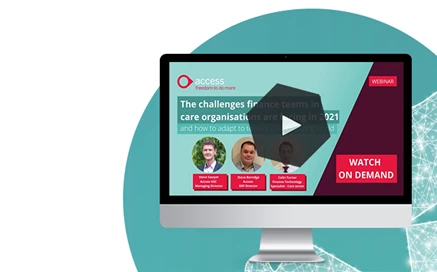
The challenges faced by finance teams in care organisations
Get an insight into the world of health and social care and discuss key challenges care organisations are facing and how to solve them with the right technology.
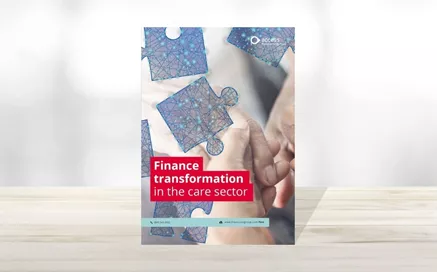
Get your guide to finance transformation in the care sector
Why digital transformation is necessary for care providers.
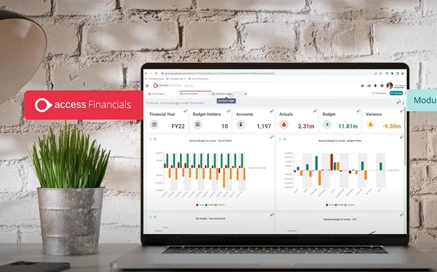
Increase revenue and reduce costs with an integrated management platform
How an integrated financial and care platform can give you a single version of the truth enabling better compliance, reduced costs and increased profitability.
Explore further
Discover more resources on finance automation and integration in care.

